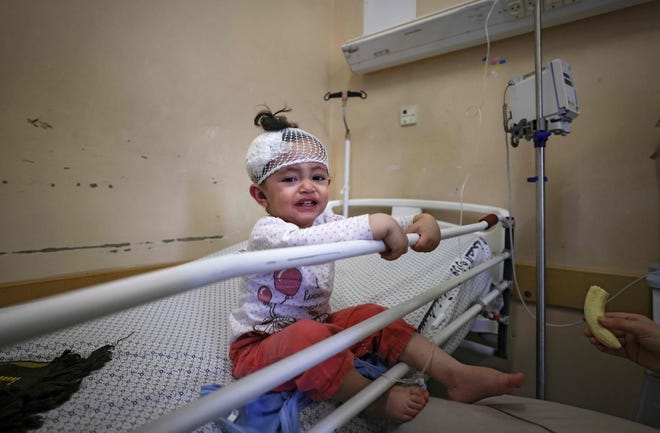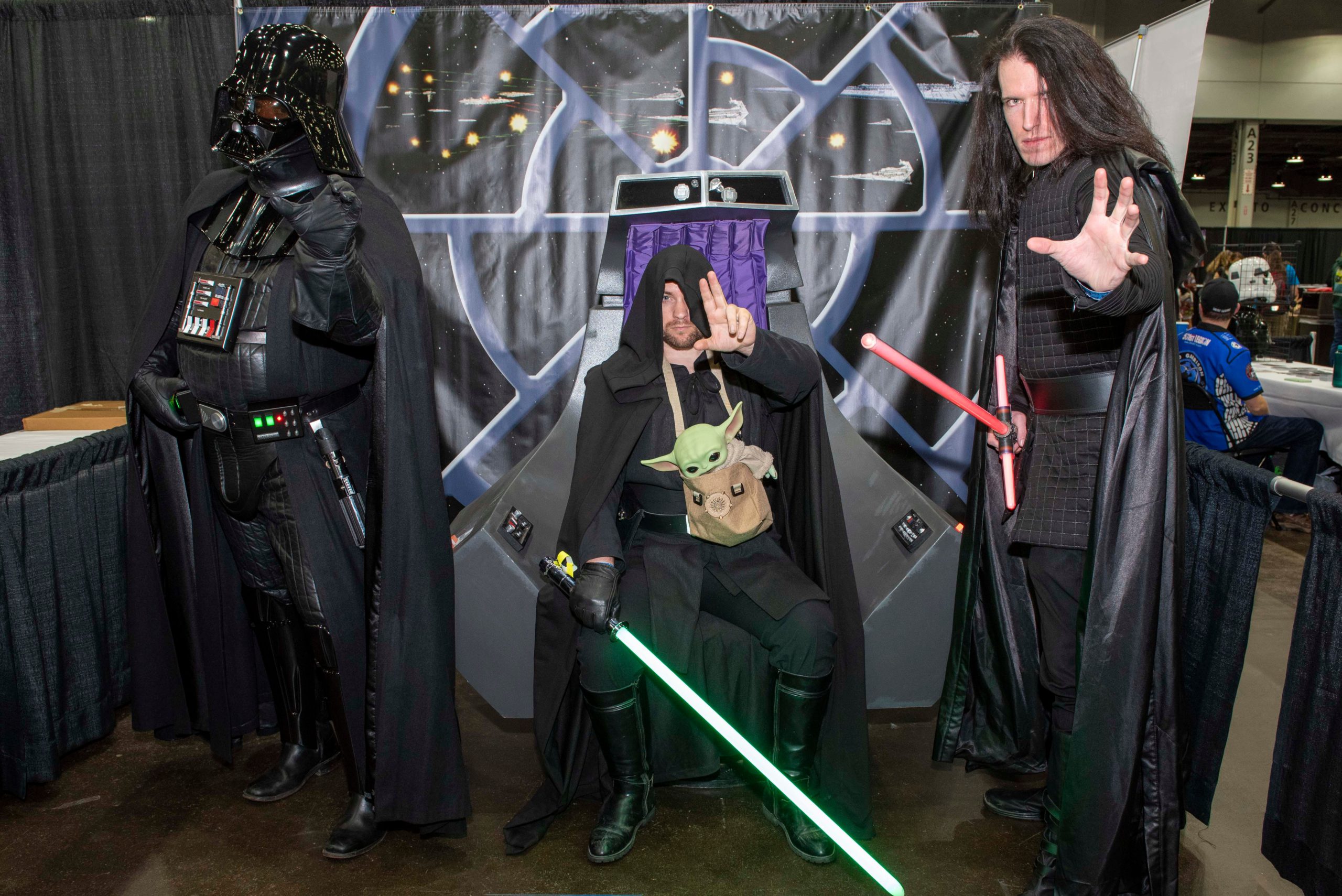
The Israeli-Palestinian conflict exacts a heavy price, particularly on the region's children.
In the past week, amid the most intense fighting between Israel and Gaza militants since 2014, 52 Palestinian children were killed, according to the Palestinian Centre for Human Rights. The United Nations reports two Israeli children died during the current escalation.
The deaths of children capture international attention, but human rights experts say more focus is needed on the traumatized children surviving the conflict. In a video widely shared on social media, a girl in Gaza grows emotional while gesturing to the ruins around her, seemingly pleading with viewers as she asks, "what do you expect me to do? Fix it? I'm only 10."
While experts on conflict and trauma say both Israeli and Palestinian children will experience adverse mental health effects in the short and long-term, children living in Gaza are more vulnerable because they are poorly protected from attacks, exposed to more civilian causalities and lack mental health care. In Gaza, more than 40% of the population are children under 14 years old. Hamas, a militant Islamic group, has controlled Gaza since 2007.
Voices:It's hard not to despair in Israel, with our sirens, safe rooms and never-ending hatreds
'It's a human rights issue':Thousands across US join global protests in solidarity with Palestine
"(What) children in Gaza are exposed to on a regular basis exceeds anything, anything that any children anywhere else in the world experience," said Jess Ghannam, a professor of psychiatry in the School of Medicine at the University of California San Francisco who specializes in the health consequences of war on displaced communities and the psychological effects of armed conflict on children. "There's basically no place to go for these children. They are unable to escape."

Trauma can have a greater impact on a person when they are unable to remove themselves from a dangerous situation. Ghannam, who has made more than two dozen visits to Gaza in the last two decades, said a distinct feature of the conflict is that the children in Gaza's narrow coastal strip feel trapped with borders on either side from Egypt and Israel. In other conflict regions, children and their caregivers are able to move. There is some feeling of control.
A 2020 study published in the journal "Frontiers in Psychiatry" found that among Palestinian children and adolescents in the Gaza Strip, nearly 90% had experienced personal trauma and more than 80% had witnessed trauma to others. In Gaza, it is virtually impossible, experts say, for children to access mental health care.
"It's that utter sense of and inability to do anything about it that makes the impact of it far worse," Ghannam said.
Palestinian and Israeli children both suffer trauma, but differences abound
Children on both sides of the conflict are exposed to traumatic events, to the terror of sirens and sudden explosions. Jennifer Leaning, a senior research fellow at the François-Xavier Bagnoud Center for Health and Human Rights at Harvard, said in parts of Israel that were particularly vulnerable to attacks in 2014, children were told to avoid going to school or to only stay in heavily protected spaces when attending. Since bathrooms were typically outside, many children avoided them.
"The kids basically stopped going to the bathroom during the eight or 10 hours of school because they were so terrified," she said.
But both Ghannam and Leaning say children in Gaza lack protective factors like the ones Israel affords its citizens.
"Many Israeli children have the same kind of PTSD but if you look at the context of being able to get to a bomb shelter, having access to an integrated healthcare system, being able to access mental health services and have parents who can protect them. The differences are enormous," Ghannam said.
Children in Israel will have many of the same symptoms, Leaning said, but one cannot underestimate the differences in sources of safety.
"They have parents and grandparents and extended family that can give them perspective and they have a government that they rely on and trust," she said. "There are none of those assets or supports for kids in Gaza."
Leaning said even if the infrastructure were there, mental healthcare is unlikely to be very effective in an environment where trauma is ongoing.
"Mental healthcare only really begins to work when the acute trauma is not raining down," she said.
Caregivers influence coping, but many parents suffer themselves
How a child copes with trauma is directly tied to their level of caregiver support. A calm and loving parent can help mitigate the impact of a traumatic event on a child.
"The fear the adult caretaker feels and expresses in many ways permeates the views of the children," Leaning said. "So to the extent that the parents can stay serene, or very collected, or have the appearance of being in control, this is the locus of safety for the children."
Caregivers on both sides of the conflict struggle with raising their children under the threat of violence. But in Israeli parents have access to mental healthcare and have the autonomy to move their children to safer spaces, within their own country or outside of it. In Israel, a highly effective missile defense system called the Iron Dome also means rocket attacks from Gaza rarely hit their targets.
In Gaza, Leaning said parents "are afraid and running and trying to find any kind of shelter before the next night comes."
"The notion that the adult caretakers now can provide a cone of protection and solidity for the children I think is highly unlikely. ... Families are deeply afraid, and children are exposed to that fear, and in an analog process absorb it," she said.
For children who have lost adult caregivers during the conflict, experts say trauma is intensified.
Childhoods marked by trauma
In places untouched by war, childhood is marked by milestones. For children growing up in conflict zones, childhood is marked by trauma.
When aid workers visit Gaza, it's typical to see children of all ages huddled against their parents, Leaning said. A 2-year-old who would normally be learning to separate from their parents, instead clings to them. Leaning said it's not uncommon for children who have met their milestones to regress.
Young children aren't spending enough time playing, which is central to healthy growth. They aren't building social emotional skills with their peers. Their lives are defined by fear, often concerning the safety and permanence of their caregivers.
For older children, Leaning said there is often an problem with unfocused rage.
"The kids have great difficulty expressing their feelings," she said. "They'll be silent, and sullen, many of them will get very depressed, but the expression of feeling comes out in rage, acting out, which makes life difficult for any parent, let alone what these parents are dealing with."
The importance of hope
Mental health experts say hope is an essential component of basic functioning. It's fundamental for mental well-being. In Gaza, Leaning said children and their parents struggle to hope.
She said she's witnessed parents in a state of "semi-despair." They want better for their children, for them to be educated, to excel, to access a better life. But for many children living amid violence, the dreams of their parents feel elusive.
"These children don't see how that's going to mean anything. ... These older kids slip into this sullen depression, and/or militancy," Leaning said. "There's a hopelessness that makes them do risky things. What is happening to the children is actually in the worst interest of anyone who seeks peace between Israel and Palestine."
You may also be interested in:









